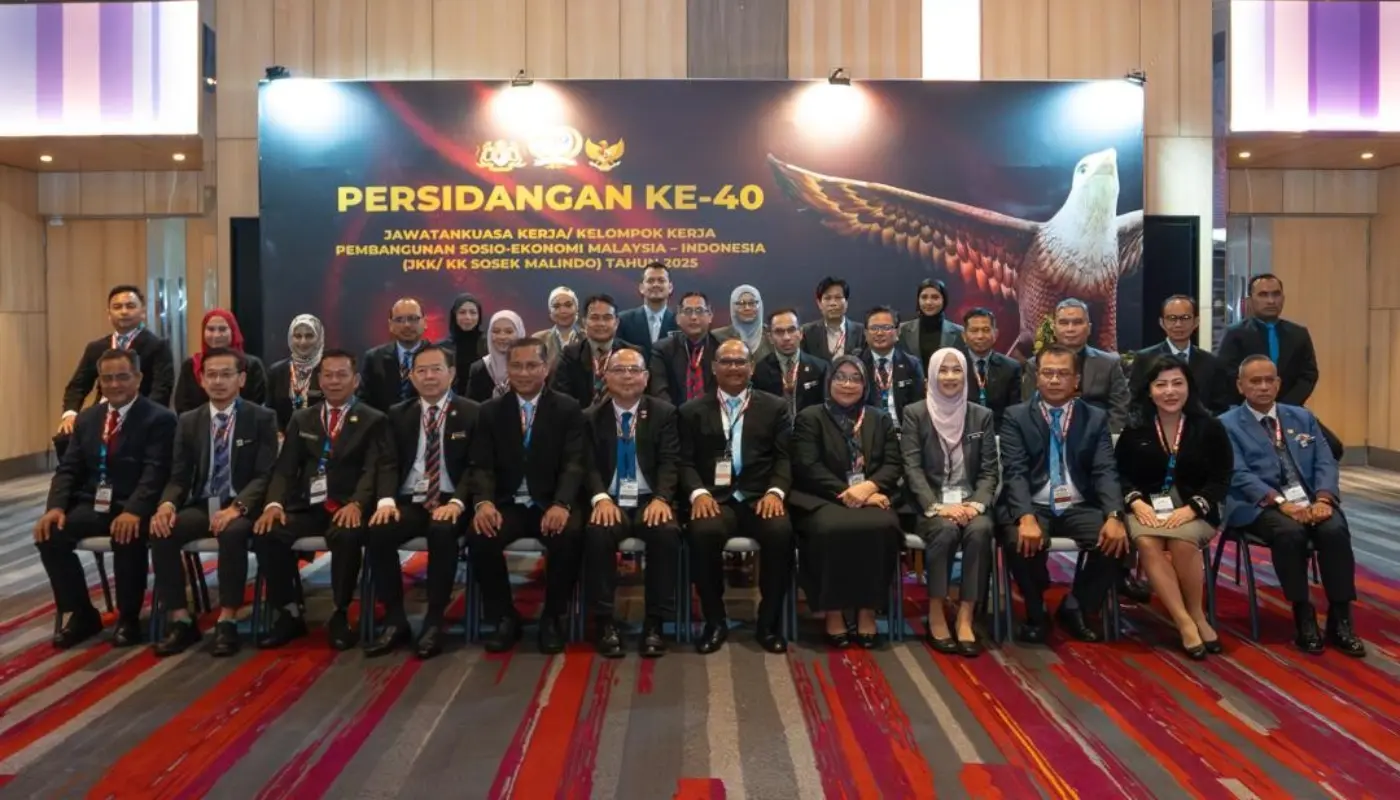LANGKAWI – The Sarawak Government has reaffirmed its commitment to accelerating trade normalisation along the Sarawak-West Kalimantan border, highlighting the importance of regional cooperation in strengthening socio-economic development.
The proposal was presented by Dato Sri Dr Muhammad Abdullah Zaidel, Deputy Sarawak Secretary (Economic Planning and Development), during the 40th Meeting of the Malaysia-Indonesia Socio-Economic Development Working Committee/Working Group (JKK/KK SOSEK MALINDO) held in Langkawi, Kedah.
Leading the Sarawak delegation as Chairman of SOSEK MALINDO Sarawak, he emphasised that expanding participation to include East Kalimantan (KALTIM) and North Kalimantan (KALTARA) would enhance dialogue on border-related issues.
According to Dr Muhammad Abdullah, the inclusion of these regions would provide a more comprehensive platform for addressing socio-economic and security concerns, ensuring that development strategies are coordinated across multiple border territories.
He noted that such collaboration is vital for fostering stability and prosperity in the wider Borneo region.
The Sarawak Government also raised the matter of normalising trade at the Tebedu–Entikong border crossing, a long-standing issue agreed upon by the Prime Minister of Malaysia and the President of Indonesia during the 13th Annual Malaysia-Indonesia Consultation on 29 July 2025.
The move is expected to streamline cross-border commerce, benefiting traders and communities on both sides.
In addition to trade discussions, the Langkawi meeting reached consensus on Standard Operating Procedures (SOPs) for the repatriation of remains between Sarawak and West Kalimantan.
This agreement is seen as a humanitarian step forward, ensuring dignity and efficiency in cross-border arrangements.
Attention was also given to infrastructure development, with updates on the Temajuk Temporary Border Crossing Post (PLB). The facility, scheduled for completion by December 2025, is expected to be inaugurated in the first quarter of 2026.
Once operational, the PLB will provide a new gateway for movement and trade, further strengthening ties between Sarawak and Kalimantan.
Observers note that Sarawak’s proactive stance reflects its broader economic vision of enhancing regional connectivity and cooperation.
By pushing for trade normalisation and expanding SOSEK MALINDO’s scope, the state is positioning itself as a key player in cross-border development and integration.
The Langkawi meeting underscored the importance of Malaysia-Indonesia collaboration in addressing shared challenges, with Sarawak’s proposals expected to shape future policies on border trade, security, and socio-economic growth.





